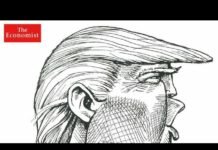- Home
-
AM TV
-
AM LIVE
-
-
Video
-
AllAM LIVEAM TVAmharic NewsAM+Arts & CultureAbe TokichawAbyssinia ShowEBSEnkokilishESFNA 2017 EventsFeta ShowGera ShowReyotSomiEthiopiaTalk ShowTayituYe Afta Chewata SeasonYe’ Beteseb ChewataYemaleda KokebochChildrenLittle Big ShotsTibeb GirlsTsehai Loves LearningComedyKansiime AnneMark AngelCookingFeaturedFilmsHealth
-
- አማርኛ
-
AM English
-
- Opinions
- Events
- Links
AbbayMedia 'The Ethiopian Information Bank' is your Ethiopian news, entertainment, music website. We provide you with the latest breaking news and videos on all things Ethiopia.
Contact us: post @abbaymedia.com
© 2016 Abbay Media 'The Ethiopian Information Bank'





































![Why the Rush to Privatize Ethiopia’s Strategic Assets Now [Aklog Birara (DR.)]](/wp-content/uploads/2018/04/DR-BIRARA-1-100x70.jpg.pagespeed.ce.JhrmQa8I2Q.jpg)

You know who slut shames women…other women
Imagine being this retarded.
They're reacting to Jordan Peterson lol
For all those upset by this video, try this: read some of the comments by women here. I was trying to point out just three things. 1) We often use language in automatic, stereotyped patterns. This is worth questioning in itself. Do you want to write and speak on autopilot? 2) We often use negative language to describe a quality in women where we use a positive word to describe the same quality in men: women who assert themselves in work meetings are far more often called "domineering" or "aggressive" than men are. There is a massive pile of research on this; it isn't controversial. 3) Many "compliments" are not taken as such by the hearer; "feisty" and "articulate" are often taken as condescending.
Here is the argument in a column.
https://www.economist.com/books-and-arts/2016/02/13/double-edged-words
I'm not saying gender differences don't exist. I'm just saying that it's worth thinking about your language and not using it in lazy stereotyped patterns. A bonus to this is that it will make you a more original and arresting speaker or writer.
Ah, remember when the Economist actually talked about y'know..economics and wasn't a feminist/cultural marxist propaganda mouthpiece?
Those were nice days. And judging by the dislike ratio, I'm not the only one who thinks this.
He is right that good manners ought to be sought and appreciated, however,if you are taking a position you must define your terms: what does sexism mean?or is it a case of I'll know it when I see it?
I’ve never taken issue with being called a masculine adjective such as handsome, however I dislike being called pretty. Let’s not offend people by deliberately using less acceptable adjectives for them.
Additionally, I don’t think women should be offended by feminine adjectives. It’s not a bad thing to be female.
boriiiiiing!!!!
Blegh social marxism…
Woo hoo! Newspeak here we come!